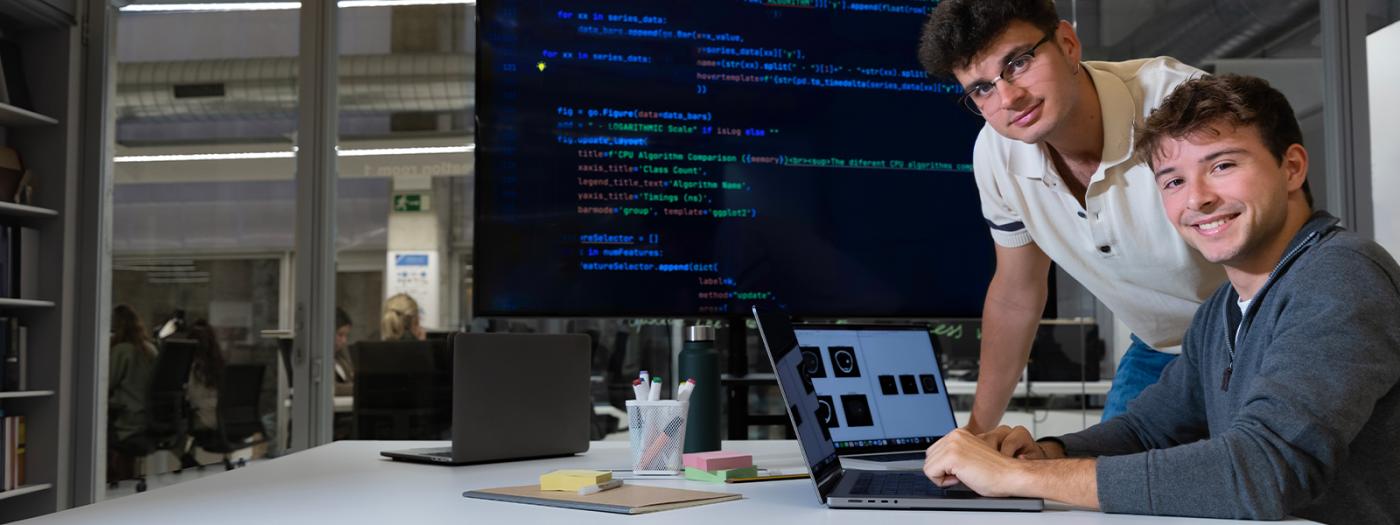The goal of the course is to integrate and consolidate the knowledge acquired throughout the degree by developing a robotics project. The student is thus exposed to new challenges, on the acquisition of both technical knowledge as well as traversal abilities such as leadership, teamwork, organization and planning, research, creativity, improvisation, problem solving and time management.
Students work in small groups (2 or 3 people) choosing their own and unique project. The main project requirement is that it should try to solve a real-life problem through a robotic system.
Titular Professors
Programming, Linux, ROS, python
Learning Outcomes of this subject are:
RA.1 Problem identification, end-users needs
RA.2 Development of creative abilities
RA.3 Search of solutions
RA.4 Risk analysis and contingency plans
RA.5 Design, implementation and evaluation of robotic systems RA.6 Robotic system integration
RA.7 Soft skills development
PART I: Project definition
1. User-centered design methodology review
2. Problems/needs identification
3. Ideas generation
4. Concept definition
PART II: Project development
5. Design
6. Implementation
7. Evaluation
8. Presentation
The development of the project is based on a user-centered design approach for product development, where the students start the process identifying a real problem in society, undergo an idea exploration stage up to the conceptualization of an idea. Such concept is then further analyzed to design, implement and evaluate throughout the academic year.
Each group will set their own golas, timings and work style. At each session, the teachers' task is to follow-up their work, ensuring that all participants have clear allocated roles and tasks, that the project achieves the goals set at the beginning to maximize success, and to guide the students through the whole process. It is not their task to provide solutions nor develop any part of the project.
Project development:
Teamwork
Interdisciplinary work
Creativity
Organization and planning
Research
Problem solving
Video: a "selling the idea" video is required as part of the project:
The addressed need
The concept
Design and implementation overview
Results
Oral presentation
Project report
The subject evaluation is based on the development of the project and its presentation.
The mark is computed as follows:
Final mark = 10% project proposal + 40% project development + 10% oral presentation + 20% video + 20% project report
Noman, D. (1988) The Design of everyday things. Basic Books.
